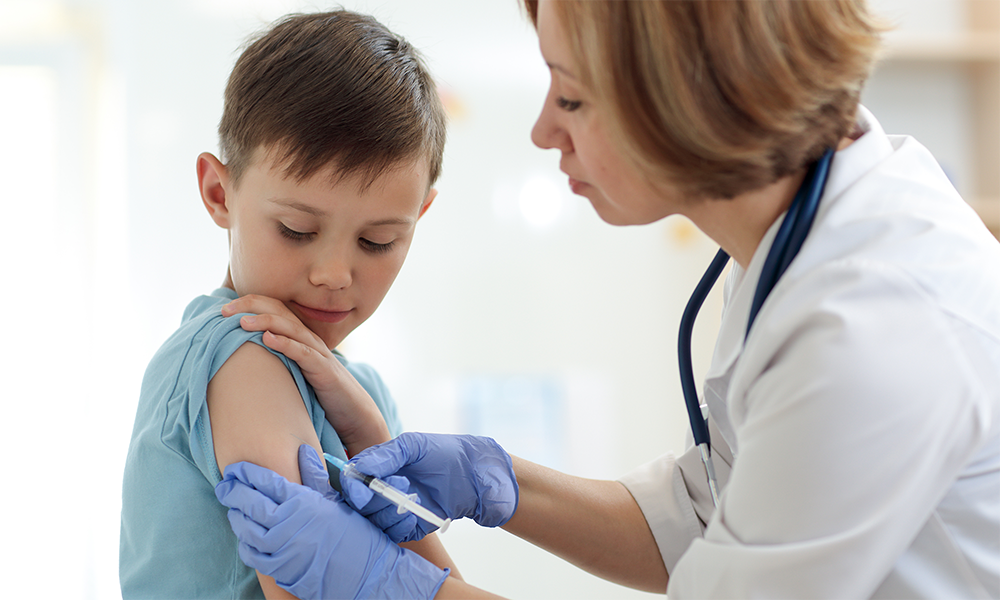RABIKID

The ITM Clinical Trial Site is seeking young volunteers for the RABIKID study, in which we want to evaluate alternative, innovative and child-friendly methods for administering an existing rabies vaccine in the skin to children.
For whom: Healthy children between 4 and 14 years old, without prior vaccination with a rabies vaccine and who are expected to travel to a rabies endemic country during their life
Duration: 2 to 3 months
Study visits: 4 visits to the ITM Clinical Trial Site
Vaccine: Rabipur®, a marketed vaccine against rabies virus
Injection devices: VAX-ID®, a microneedle device and Tropis® ID, a jet injector device
Compensation: You will receive a compensation per study visit to compensate for your time and travel
Purpose of research
Past research has shown that vaccinating in the skin instead of the usual route in the muscle has some important advantages. Only a fraction of the normal dose is needed and the effect of the rabies vaccine is similar. Also, less systemic side-effects are seen after administration of this vaccine in the skin. Moreover, site-specific delivery of the vaccine in the skin could be superior to conventional vaccination in the muscle in terms of immune response.
However, the technique of vaccinating in the skin is more difficult to perform, and is perceived as more painful. For this reason, several devices have been created to make the vaccination easier, standardized and more child-friendly. By using these devices, it is expected that the child will feel the prick less.
This study aims to describe experience and the usability of 2 of these devices, together with the most common way of administrating the rabies vaccine in this age category, namely in the muscle of the upper arm. This means that every child will receive 3 vaccinations (which is a validated schedule), but each time by another method.
Who can participate?
We are looking for healthy young participants between the ages of 4 and 14 years old (both inclusive) who have not had a rabies vaccination in the past. Other important criteria are:
You should not have planned a travel to an endemic region for rabies until 15 days after receiving all study vaccine doses
The child should not have had a severe reaction after another vaccination
The child should not have an extreme fear for injections
Conduct of the study
If you are invited to participate in the study, at least one of the parents will accompany the child to the study center. There, the study doctor will explain the study in full detail. Only after that, you can decide whether or not you want your child to participate. You’ll have to confirm that the other parent also is aware of the study and agrees with your child’s participation.
If you decide to continue, your child will be assigned to one of 6 groups, which merely determines which vaccination method will be used first, second and third. Still at the first visit, the first vaccine will be administered, after which the only thing that remains is for the child and the parent(s) to answer a few short questions about the perceived vaccination experience. The vaccine will be administered in a child-centered and calm environment by experienced nurses. The second visit (after 7 days) and third visit (after 28 days) are quite similar, with follow-up on any possible reactions of the vaccine, the administration of the next vaccine, and responding to the same questions about the vaccination.
Lastly, the fourth visit will be planned about 1 month after the last vaccination. Here we will draw a small blood sample that allows us to make sure that the child has been vaccinated properly and has enough antibodies against the virus. The numbing cream Emla® will be applied to the arm of your child (at the puncture site) before the blood draw. By using this cream, your child will feel the prick less. During each visit, you are required to stay with your child the entire time.
|
What are the risks?
The Rabipur® vaccine is safe to administer to children and is generally well tolerated. The use of the devices are not expected to pose an additional risk. The blood sample could cause slight discomfort and bruising
During the first visit, the study team will explain all possible risks in detail, as well as answer any questions you may have. Please know that you can withdraw the participation of your child at any time.
Compensation
You will not have to pay anything to be part of this trial. To cover for your time and travel, you will receive a compensation per study visit.
Team
Principal Investigator: Dr Stefanie Bracke (MD)
Coordinating Investigator: Prof Dr Patrick Soentjens (MD, PhD)
Questions?
Contact us at studies@itg.be.
Interested in participating?
Please review the criteria for participation carefully. You have the option to register without obligation. We will contact you as soon as possible to discuss potential participation.
Share this trial on